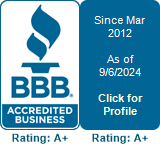If the IRS sent you a Notice of Deficiency & you failed to adequately respond, the IRS will make an assessment of the taxes against you, often without your knowledge. At that point you have 2 options: 1) pay the tax & file a Claim for Refund or 2) request an Audit Reconsideration. Most people cannot pay the tax so they submit a request for an Audit Reconsideration.
However, the IRS will NOT review your request unless you simultaneously submit the evidence you have to prove your case.
Benefits & Burdens
Since the IRS has already made an assessment against you, the tax is due. So, if you can't pay it, you'll have to enter an agreement to pay. Our TaxHelp Webinars guide you through this difficult process. But, you won't have the option of suing them until you have full-paid the tax.
It is to your advantage if you can pay it because the Claim for Refund you submit will include an Audit Reconsideration. If the IRS refuses to grant your Claim then you can sue them in US District Court.
One advantage to an Audit Reconsideration is it does not extend the statute of limitations for collection of the taxes. So, there's no harm in pursuing it. If you've full-paid, you can also pursue a Penalty Abatement with your Audit Reconsideration.
Procedures
First, you must obtain a copy of the Form 4549 and Form 886 which justified the Notice of Deficiency which was sent to you. If you do not have a copy of these forms, you'll have to contact the IRS & have them send you the "Audit Report" for your file.
Once you obtain these forms, review the Form 4549 to determine what issues are involved. You'll win against the IRS when you organize your records to directly address the issues raised in the Form 4549.
Fortunately, our TaxHelp Audit Program shows you exactly what records to gather & how to organize them precisely.
Once your records are complete, you can use the direction of IRS Publication 3598 to submit your case. You should prepare a Narrative briefly explaining the issues & highlighting the evidence you have submitted.
As you prepare for the Audit Reconsideration the IRS will send you several Notices and they ask you to submit a "Disputed Issue Verification" (Form 12661) to organize & explain your position in one document. But, you should use the Narrative you've created to make further explanation than the form will allow.
Of course, the evidence to support your request for Audit Reconsideration will be voluminous.
You will receive Letter 3338C informing you about the process.
It may take up to a year to have a face-to-face conference with the IRS. Often, they will review your case remotely. So, you'll have to send everything by snail-mail or by fax - the IRS does not use email.
An Audit Reconsideration is essentially another Audit. If you are prepared, you'll receive a Letter 555 stating that they have favorably adjusted your account.
But, if you are not well-prepared, they will send Letter 3340C declining your request to adjust the tax.
Further Advice
As you go through the process of gathering & organizing your records you'll discover missing or lost documents. With diligence, you can reconstruct the records as best as possible to bolster your proof to the IRS. Even after you've met with the IRS Agent you'll have time to submit evidence. So, never give up!






